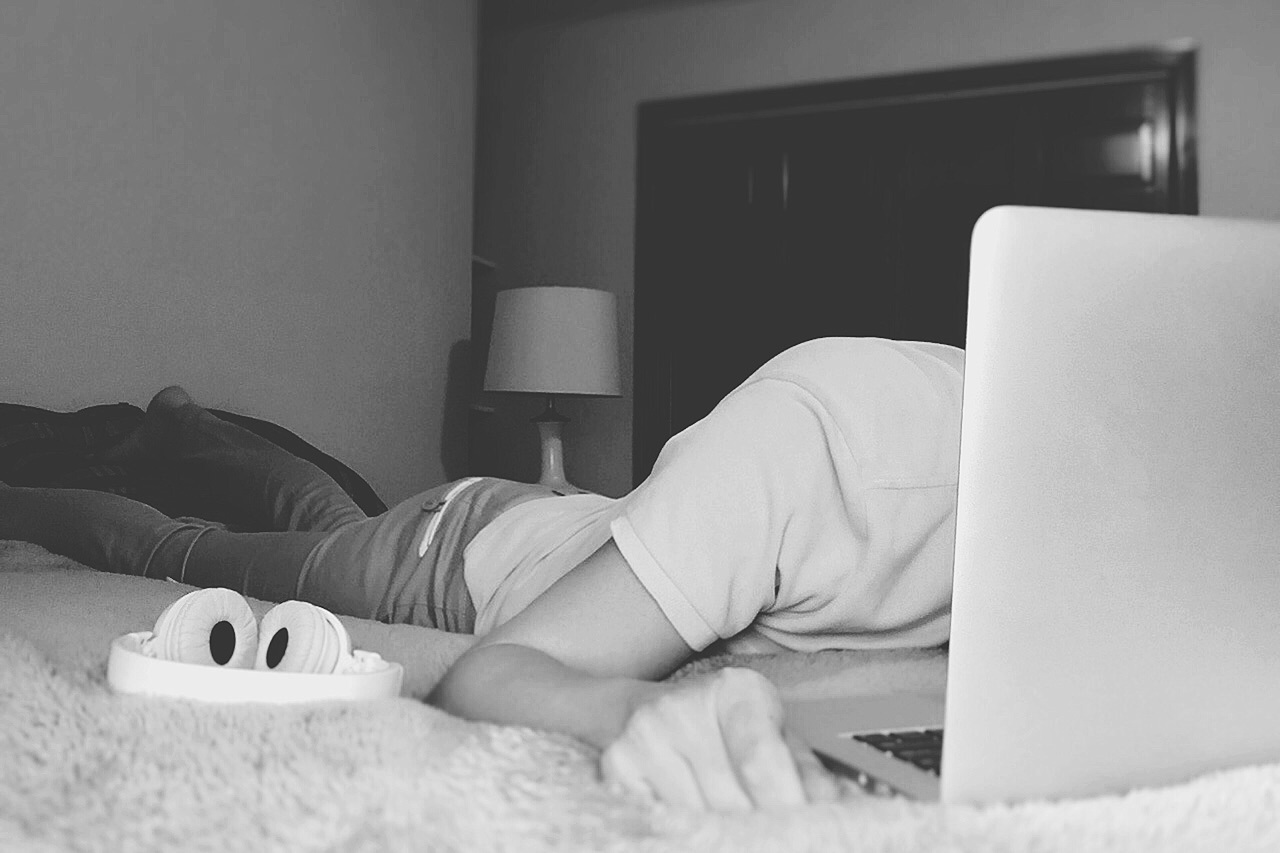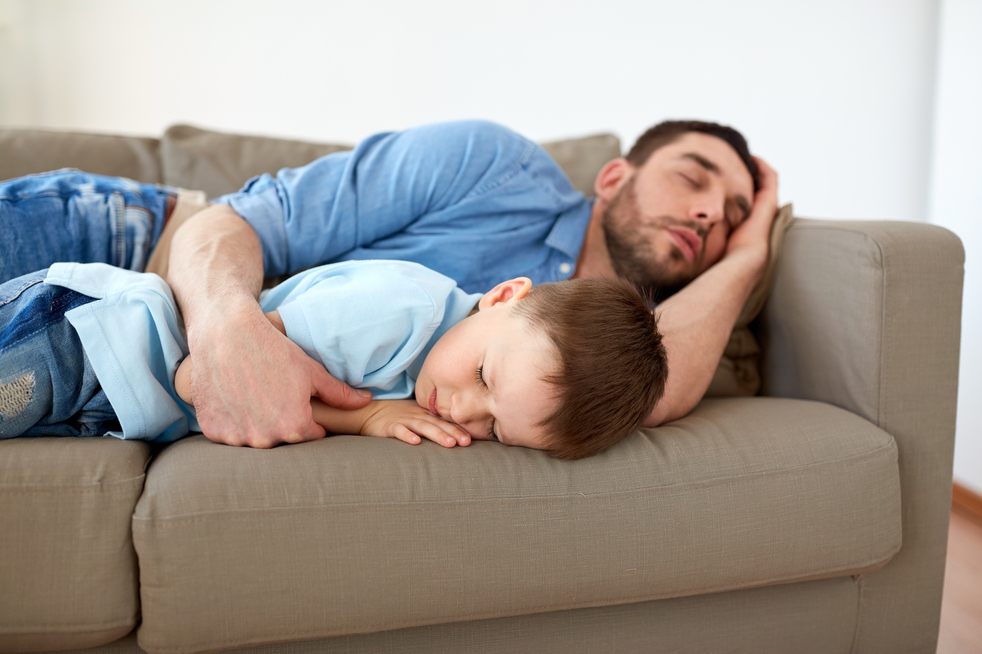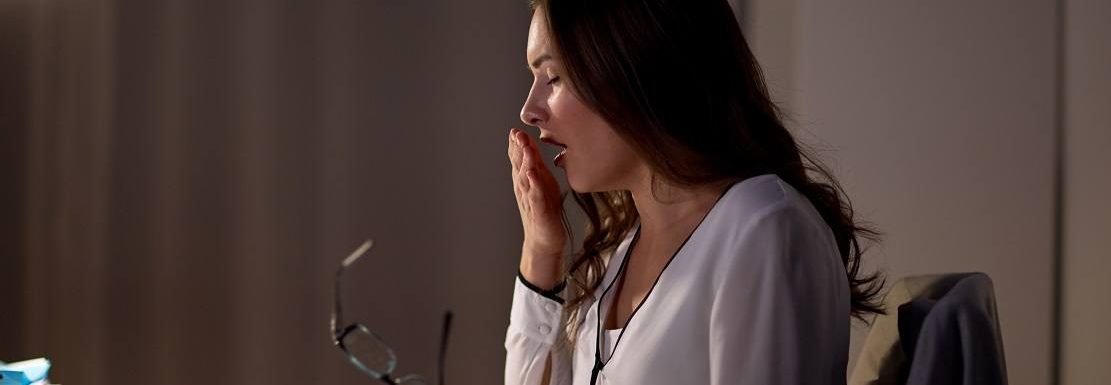According to the National Sleep Foundation, the majority of Americans are chronically under-slept. Society has a strange tendency to put lack of sleep up on a pedestal, and it’s not just in America. In South Korea, some presidential candidates make a big show of how little sleep they need. However, being tired behind the wheel is just as dangerous as driving drunk—imagine just what other aspects of your life are subpar because of fatigue.
Choosing lack of sleep is just one reason people are tired all the time. The quality of sleep is just as important as the number of logged hours. Most people don’t practice good “sleep hygiene” and have habits that are contraindicative of good sleep. For instance, drinking too much alcohol too often can get in the way of a good night’s rest. This doesn’t seem to make sense at first blush since alcohol is a depressant and many people feel relaxed and sleepy when they imbibe. In some cases, alcohol might make you initially groggy, but sleep after drinking is usually lighter and more disturbed. That’s part of the reason, besides the hangover, that you don’t feel very well when you wake up after a night of drinking.
Here are a few ways to get better sleep and stop feeling tired all the time:
 Stop looking at screens at least two hours before going to bed. This is a relatively new phenomenon and must be stopped. Screens keep your brain, and body, awake longer. It’s an intense amount of stimulation, and many people have televisions in bedrooms or stream movies in bed. Maybe you scroll through your phone even as you should be drifting off to sleep. Stopping screen time at least two hours before bed can feel challenging. Ask yourself why that is. Technology addiction is very real, and being uncomfortable due to giving up a screen for just two hours in the evening isn’t a big trade-off for a better night’s sleep.
Stop looking at screens at least two hours before going to bed. This is a relatively new phenomenon and must be stopped. Screens keep your brain, and body, awake longer. It’s an intense amount of stimulation, and many people have televisions in bedrooms or stream movies in bed. Maybe you scroll through your phone even as you should be drifting off to sleep. Stopping screen time at least two hours before bed can feel challenging. Ask yourself why that is. Technology addiction is very real, and being uncomfortable due to giving up a screen for just two hours in the evening isn’t a big trade-off for a better night’s sleep.- Avoid caffeine eight hours before bedtime. It’s time to swap out that afternoon coffee, soda, or tea for water or a decaf option. Caffeine addicts may suffer withdrawals, but even the most hardcore coffee drinker is having their sleep impacted by an afternoon fix. Switching to decaf coffee can offer a placebo effect for awhile, but ideally, it’s a good idea to train your body to start “slowing down” by the late afternoon.
- Take an afternoon nap.
 This isn’t possible for everyone, but the afternoon is the body’s natural time to want to rest. Power naps of no more than 15 minutes can give you a natural boost of energy. Some people may be able to slip away for a quick snooze in a break room or their car. If that isn’t possible, try stepping outside for a few minutes. You won’t get rest, but you will get a break from working on a screen and a breath of fresh air.
This isn’t possible for everyone, but the afternoon is the body’s natural time to want to rest. Power naps of no more than 15 minutes can give you a natural boost of energy. Some people may be able to slip away for a quick snooze in a break room or their car. If that isn’t possible, try stepping outside for a few minutes. You won’t get rest, but you will get a break from working on a screen and a breath of fresh air. - Establish a sleep routine. Having a relaxing ritual can cue your brain that it’s time to wind down. This might be a bath, chamomile tea, or reading in bed for awhile before falling asleep. Whatever your ritual is, make sure it’s relaxing and designed to get you in the mood for sleep.
- Remove all electricity from the bedroom. You don’t need to have your phone plugged in by your bed. Get rid of all technology and opt for an old-fashioned, battery-operated alarm clock. Blue light from technology has been proven to disrupt sleep.
- Keep your bedroom cool and dark. Humans are hardwired to be alert when it’s bright. The ideal temperature for sleep is around 66 degrees, which tells your brain that it’s time to wind down. Blackout curtains and cozy bedding to snuggle into can help make your bedroom a haven.
- Minimize noise.This may be easier said than done, but there are likely many strategies you can try out to reduce noise in the bedroom. A white noise machine has helped many people fall and stay asleep.
 Upgrading bedroom windows and/or installing thicker curtains can also help. In some cases, like with noisy roommates, you may want to consider sleeping with earplugs.
Upgrading bedroom windows and/or installing thicker curtains can also help. In some cases, like with noisy roommates, you may want to consider sleeping with earplugs.
The key to less fatigue is mostly about good sleep hygiene. However, it’s also about getting the right amount of exercise each day. Exercise is the natural energy booster, and even a brisk walk around the block can instantly zap away any fatigue. Balance good sleep with healthy exercise and you’ll quickly find that the afternoon slump is a little easier to handle.

Leave a Reply